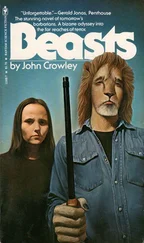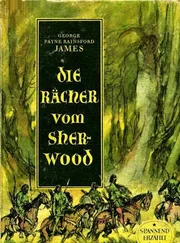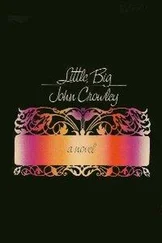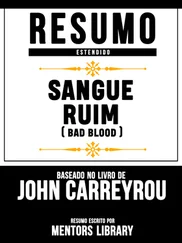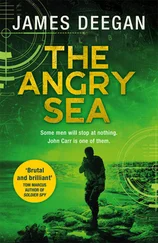“Me know you not talking bout me husband. Me damn well know you not talking bout me husband.”
He stepped away, but she followed. He walked faster, deeper into the house, not looking ahead but hearing her stomp behind.
“Where the bloodclaat you think you a go? Me talkin to you bout you God! Come evangelize to me, no? Come evangelize me.”
He was surrounded by doors, all closed save one. She was right behind him and her voice pushed him into the room. It smelt of carbolic soap, of cleanliness brought by disinfection and purging. There were seven crucifixes on the wall, all made of wood and all turned upside down. The bed faced the wall and had no sheet or covers, only a striped mattress. The wind slipped through shut, louvered windows and whispered the truth of this room to him. The mirror was turned to face the wall, as were the two paintings and the dresser. Near the door was a print of Jesus, the same that hung on church walls and grocery shops, with his head tilted as if curious, with light bouncing off gentle brown hair and with eyes wet and glimmery below eyebrows raised for pity. The picture was slashed up, down, and crossway and the heart, surrounded by a crown of thorns, was cut out. God had left this place. He knew.
“Yes, look. Look! Look good. Is that Jesus me pray to now. Jesus that no got no heart. Jesus that no got no soul. My Jesus good fi Him word. Look!”
“Oh Father who art in Heaven …”
“Hallowed be His goddamn name.”
He was cornered, she was wounded.
“God didn’t put the rum glass in his hand.”
“Who is you to talk, you is a bigger drunkard them him ever was, but you still living.”
The Pastor said nothing.
“God never want me have him so Him take him away,” she continued. “Not that you same one love say? God giveth and taketh away. Why you take him away, eeh? Why you take him away?”
“Miss Greenfield—”
“Why you take him away? You have million and million and all me have is one, and you take him away.”
“Mrs. Greenfield—”
“You know what me want?”
“No, Mrs.—”
“You know what me want, Jesus?”
“Mary …”
“Me don’t want to be no widow no more. Me don’t want be no widow. Me want to be a woman. You can give me that, Jesus? Give it to me, Jesus, give it to me, Jesus. Turn me back into woman. Give it to me, Jesus.” She had lifted up her skirt and there were no panties underneath. She moved toward him, her eyes wet with tears and fingers gripping the swept-up skirt tightly. Between her legs was dark, empty. “You can turn me back to a woman? You can turn me back to a woman, Jesus?”
“Mary Greenfield!”
“Me have faith, Puppa Jesus. Me know if me touch it, it will heal me.” She grabbed his crotch and squeezed. Hector pushed her off, harder than he intended. The Widow stumbled onto the bed, sobbing.
“God not giving him back, Mary.”
He was afraid to step past her. A mission waited outside the door but the Devil had blocked him in. In his spirit her chest was pushing against his, her hand grabbing his penis softly one second, harder the next. This was the Devil’s work and he was no respecter of persons, not even a broken Widow woman. There was nothing to do but stand, his white suit drawing light from the darkness.
She curled up in shadow, sniffing, wiping her nose and looking down on the ground. “Get out,” she said.

Now that Sunday mornings had thrown off lethargy for entertainment, the energy was electric. The faithful were here, as were the amused, the riveted, the bitter, and the curious, some not from Gibbeah. Apostle York saw the crowd gather from his window. He sat still with a fire in his eyes. The beard hid the healed sore below his lip, but there were others above and below his belt. They reminded him of what had come and gone and what had not yet come to pass. He knew worse would happen soon, but this was not a morning to dwell on what crept beneath his skin. Lucinda had left the day’s notices on his desk and he saw two little spots of red peeping from her back. York touched his lips with his index finger, silencing his spirit. The organ sounded and raised the first chorus. He reached for his black and red gown.
They swarmed the front rows like penny stinkers. The rest of the faithful filled out the middle rows, leaving everybody else to the back benches.
Today he was to speak of many things. He was ready. He told the congregation to turn to the Book of Mark, Chapter Four, verse three.
Hearken! Behold, there went out a sower to sow: And it came to pass, as he sowed, some fell by the wayside, and the fowls of the air came and devoured it up. And some fell on stony ground.
There was a commotion outside. The impact hit the church in waves, from outside to in. The Apostle was hit by reverberation. At the front of the church he would be the last to catch the news.
“DISGRACE!” said the voice. Firm, with an authority that nobody had heard from him before. Pastor Bligh stood gleaming at the foot of the church’s steps. His left hand held an open Bible and his right pointed to the steeple. The few who had come to church when he was Pastor were astonished to hear the man shout, yet there he was, bellowing like a risen spirit.
Inside, the Apostle did not know what was taking place. “Church, settle down. Let’s not have any distractions.
And some fell on stony ground, where it had not much Earth; and immediately—
“ABOMINATION!”
The Apostle heard a war cry. Anger was an emotion he cursed. Bemusement was better, amusement was better than that.
“Looks like somebody escape from Bellevue in God’s good morning. Now what is the world coming to, church? Let’s get back to the scripture and let the Lord have mercy on that poor soul.
And immediately it sprang up, because it had no depth of Earth: But when the sun was up, it—
“ANTICHRIST!”
The Apostle’s own three words had returned to curse him. The book fell from his hand.
“Who the Hell is that?”
Rumor would spread that his eyes went red. Lucinda was already ahead of him, and she returned, hopping and skipping like an imp with a secret.
“Is Pastor Bligh! Is Pastor Bligh!”
Hector Bligh held his ground as the sun baked his back. He felt what he thought was youth, but was the disappearance of twenty-two years of burden. People had a way of carrying afflictions like possessions, thinking suffering was the evidence of life. But the Holy Spirit had made him new. It had revitalized his moribund body with purpose and promise. Maybe he was overextending like Icarus, but his hand felt greater than the wind and mightier than the sun. He would stand in the middle of the road and not be moved. They came out to meet him, Lucinda first, followed by The Five, Clarence, and finally, the Apostle York.
“Well, you too ugly to be any woman’s son so what should we call you? The Prodigal Bastard?” the Apostle said.
“I can think of a couple names for you,” returned Bligh.
“Really now. But look at you, eh? Maybe I should have my congregation’s arse’s flogged. I mean, look at what it did for you.”
“I know your ways. I know you.”
“You don’t say. Couple days ago you didn’t even know yourself. But let me remind you, because you’ve gone from drunk to deluded. You, Hector Bligh, are a stupid old man. You’re a failure, you’re a drunkard, and you’re the mess that never turned into a message. Now you’re rising up like you were dead for three days, but do mankind a favor, Bligh. Do Gibbeah a favor. Stay down. You hear me? Stay down on the ground. It’s the only place you’re fit for. Just go back where you came from and have a good sleep. Speaking of sleeping, how is the Widow? Does she have you under heavy manners?”
Читать дальше


